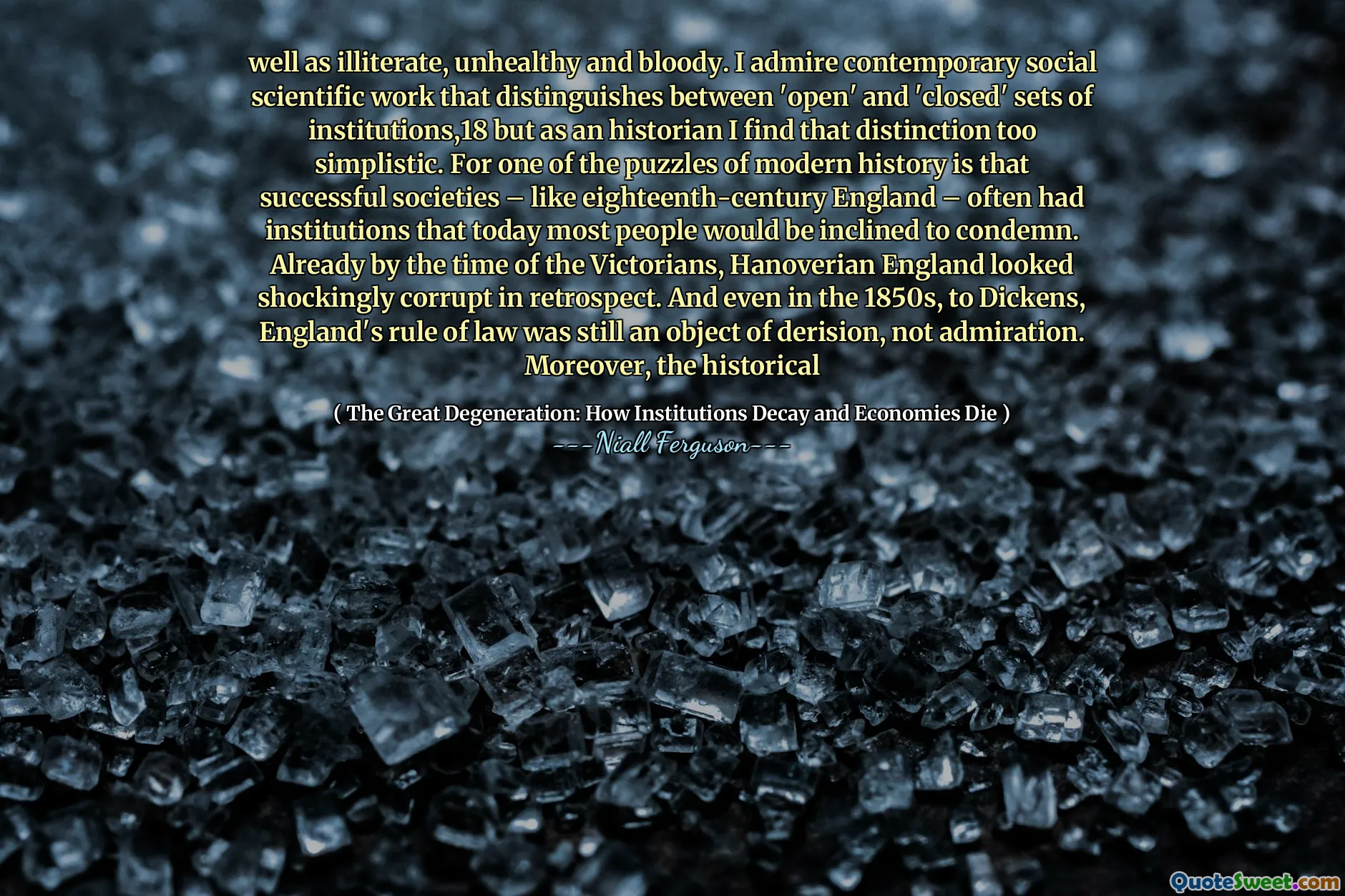
well as illiterate, unhealthy and bloody. I admire contemporary social scientific work that distinguishes between 'open' and 'closed' sets of institutions,18 but as an historian I find that distinction too simplistic. For one of the puzzles of modern history is that successful societies – like eighteenth-century England – often had institutions that today most people would be inclined to condemn. Already by the time of the Victorians, Hanoverian England looked shockingly corrupt in retrospect. And even in the 1850s, to Dickens, England's rule of law was still an object of derision, not admiration. Moreover, the historical
Niall Ferguson, in "The Great Degeneration," critiques the simplistic categorization of institutions as 'open' or 'closed' in contemporary social sciences. As a historian, he argues that this binary overlooks the complexities of modern history, where formerly successful societies, such as eighteenth-century England, contained institutions that would now be deemed problematic. These institutions, despite their effectiveness at the time, have been criticized in hindsight for their corruption and inefficiency.
Moreover, Ferguson points out that by the Victorian era, even institutions considered vital in the past faced criticism. Writers like Charles Dickens highlighted flaws in the English legal system, demonstrating that perceptions of societal success can change over time. This reflects that what may seem like progress now can be viewed as detrimental later, showing the evolution of societal judgments surrounding institutions.











